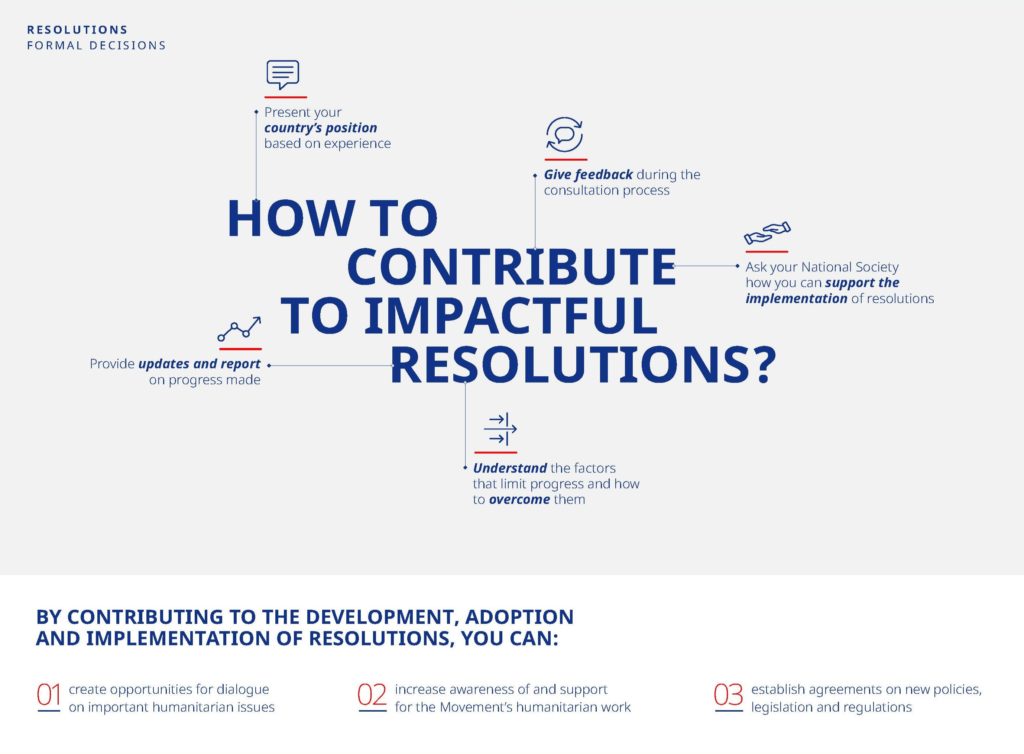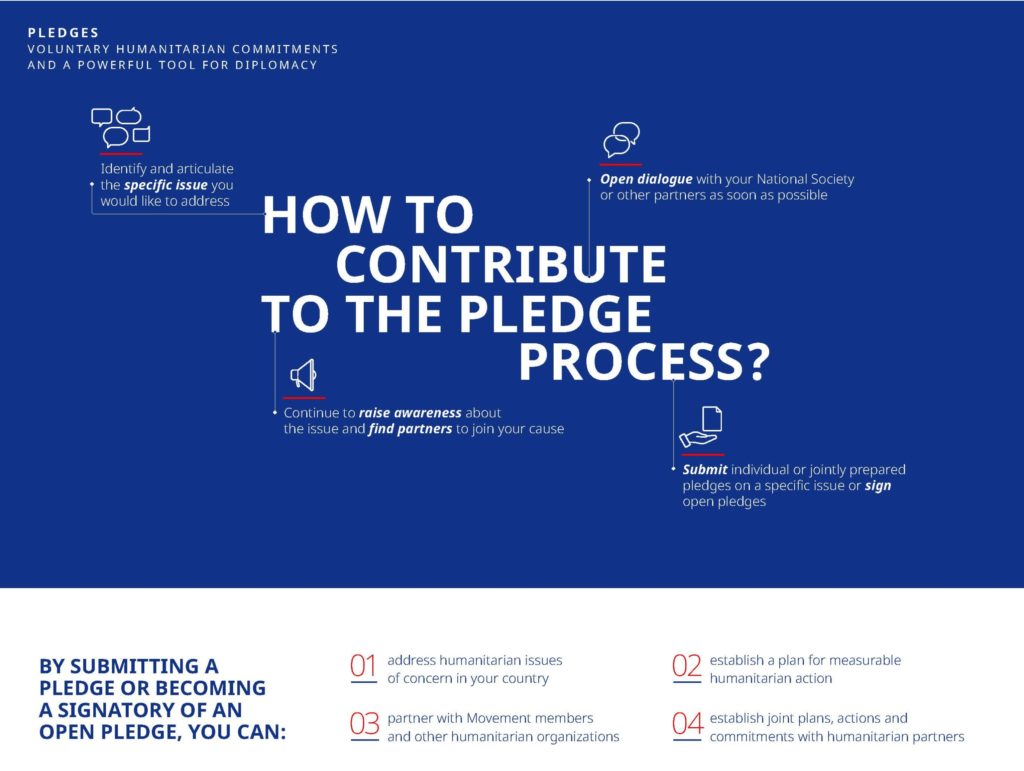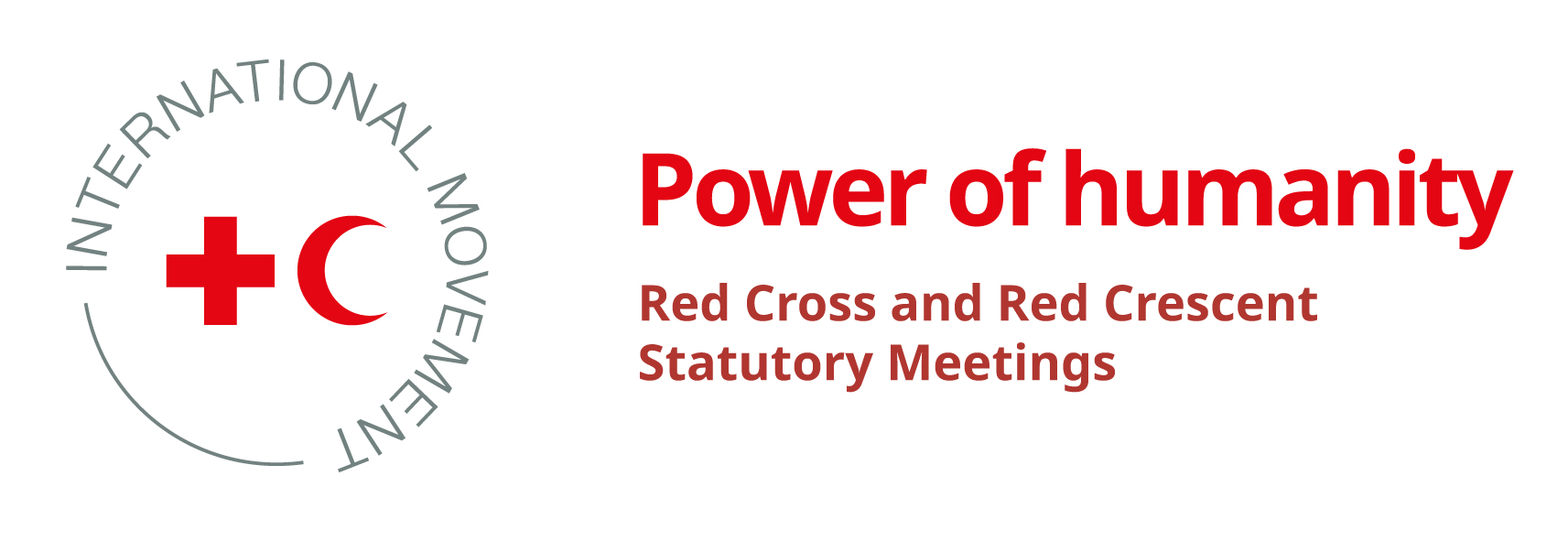Engagement guide for states –
34th International Conference
As a state party to the Geneva Conventions, your government is a member of the International Conference. You have a crucial role to play in this important global platform by raising awareness of and providing support for the Movement’s humanitarian activities and by making joint commitments on humanitarian priorities.
Engagement guide for States
This practical guide gives you key dates for your diary and explains the preparation milestones, with tips to ensure you are well prepared and able to contribute fully.
Main consultations and meetings
-
Briefings for state representatives
These briefings allow the organizers to share information about the International Conference, and they give you an opportunity to ask the organizers questions and exchange views on conference-related subjects. -
Preparatory meeting with states and National Societies
The preparatory meeting is usually held about five months before the conference. It allows states and National Societies to discuss the proposed draft zero resolutions prior to the conference. -
Bilateral and regional group meetings
These meetings between states, National Societies and the organizers are an important part of the preparation process because they allow detailed and focused discussions.
Resolutions and what they mean for states
Resolutions are the formal decisions of the International Conference. They are clear commitments from the conference members.
You will be consulted about draft resolutions in the months leading up to the International Conference in line with the dates provided. You will have opportunities to comment as they are being developed and to contribute to the writing and negotiation process as part of the drafting committee during the conference itself.
At the conference, the drafting committee has the task of negotiating and finalizing the draft resolution texts, which are then submitted to the International Conference for adoption at the final plenary session. Ideally, resolutions should be adopted by consensus, but if no consensus is reached, resolutions can be adopted by the majority of those present and voting.

Pledges and what they mean for states
Pledges are voluntary humanitarian commitments – not legally binding – that show a willingness and readiness to take action. They are a powerful tool for diplomacy and can be used to initiate or advance dialogue with others on humanitarian issues.
States and National Societies are encouraged to make joint pledges as a means of fostering dialogue and cooperation on issues of mutual concern, which in turn can lead to measurable humanitarian action. This dialogue and cooperation can start before the conference and can continue long after it has ended. States and National Societies can work together on implementing a pledge in their country and review progress together.

Share more, learn more!
If you have any questions, need support or would like to share your ideas, please contact the conference organizers at conferences@rcrconferences.org.




